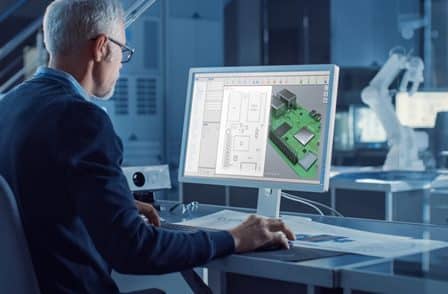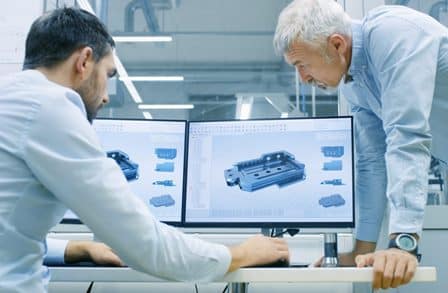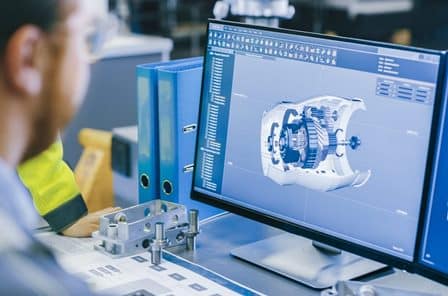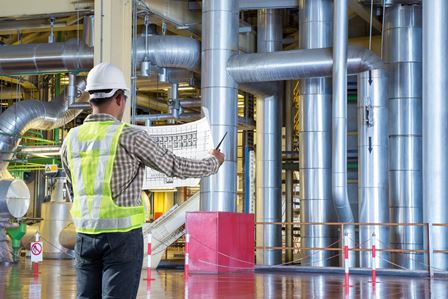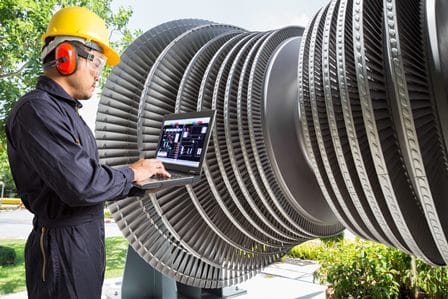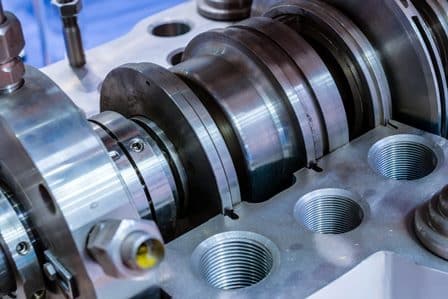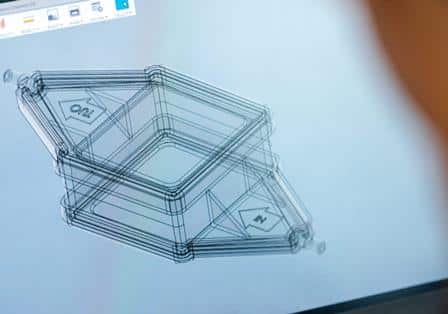Mechanical Engineering is vast, and if you were from a career perspective to box it in, it won’t be an easy task.
Prospective careers for qualified mechanical engineers include work in manufacturing, design-drafting, fluid power engineering, automation, lubricant technology, automotive engineering, thermal engineering, mining, marine, aerospace and oil and gas engineering. And that’s not even touching the tip of the iceberg.

What is Mechanical Engineering?
Mechanical engineering is considered one of the oldest disciplines of engineering. Mechanical engineers perform a variety of tasks starting from design to management of machines and equipment.
They tend to also perform a supportive role in other engineering disciplines. Several engineering disciplines have undergone successful marriage with mechanical engineering to create a hybrid between them. Good examples of this include thermal and fluids engineering.
A number of disciplines have emerged as offspring of mechanical engineering like production engineering, industrial engineering, mining engineering, automobile engineering, aerospace engineering, and mechatronics – and today you might do a lot of study in these prospective disciplines while completing a mechanical engineering degree.
Mechanical engineering education has been continuously evolving with the changing level of technology to fulfil this adoption.
Essential Skills for Mechanical Engineers
One conference paper The essential of engineering education involving critical thinking and problems solving skills among mechanical engineer employees mention that the development of critical thinking and judgment methods are required for engineers at a professional level to solve the big areas of the problems they will face at work. It is then essential for future mechanical engineers to craft these skills from a young age, and mechanical engineers with these skills will likely soar in a professional environment.
The paper concludes that to produce high potential mechanical engineering students, critical thinking and problem-solving skills will fill a vital gap for these engineers to be able to permeate further than the boundaries set by mechanical engineering textbooks.
The mechanical engineering environment is circulating and moving forward according to the rapid technological advancement and as a result, graduates and engineers of Mechanical
Engineering needs to pay more attention to applying and exploring critical thinking in their future career endeavours.

Together with this mechanical engineering requires students to be trained in creative aspects of engineering like design.
Creativity is the essence of engineering according to Developing creative engineers: a design approach to engineering education. The paper mentions that the regulatory body responsible for engineering course accreditation in Australia, Engineers Australia already implemented some focus on design as a language for engineers in the late 2000s.
When completing a Bachelor of Science (Mechanical Engineering) at EIT for reference, your first year of study will include BSC203C Engineering Design and Drawing). It aims to familiarize students in the language of engineering design with the fundamentals of design and drawing concepts including sketching, curves, orthographic and isometric projections, projections of lines-planes-solides, solid modeling, assembly modeling and creating drawings using a CAD software.
This will lead to BME204S Mechanical Design at a second-year level where students will deepen their understanding of mechanical design and the design process.
This includes basic design concepts such as stress; strain; a factor of safety; failure analysis; endurance; and, fracture mechanics. There will also be a systematic examination of the design and selection process involving mechanical system elements such as fasteners power screws; riveted and welded joints; keys; couplings; shafts; pulleys; flywheels; belts; ropes; chains; gears; bearings; springs; clutches; and brakes.
It is believed that engineering education should encourage an applications-oriented framework for teaching engineering science material and a greater emphasis on project work of a design nature.
Mechanical Engineering is Broad
Mechanical engineers use the principles of force, energy, and motion to improve the safety, efficiency, and technological advancement of the world around us and that means it includes many elements.
Some of the interesting areas of expertise among mechanical engineers include:
- Fluid Mechanics
Fluid flow phenomena are everywhere and they can be observed and described everywhere. To make it interesting fluid flow phenomena can be used in many areas like natural sites, industrial ones, sporting events, artistic creations and presentations, the production of images and books, science museums, cultural centers, and also popular mass media.
Here’s why it is so interesting according to Taking Fluid Mechanics to the General Public in many public settings.
- Natural Parks: The interaction of water and soil such as the erosion and dissolution of rocks is usually well understood by field geologists but why do certain shapes happen? It’s due to Darcy’s Law.
- Ball Games: The aerodynamics of balls and other flying bodies should be considered when dealing with the physics of sport connected to flows. The impact of recent research on sports is considerable. One example is the dependence of the trajectory of a golf ball on varying the position of the dimples on its surface. It shows how mechanical engineering knowledge can be applied in the sports arena.
- It impacts art: La vague (The Wave) by Courbet, like that of Hokusai, tends to reproduce the multiple scales of the flow in a wave. In both cases, what is shown is not an instantaneous image, but an interpretation that makes the kinematics of the flow visible by illustrating the cascade of turbulent eddies, even if the small scales evoke clasped fingers rather than dissipative eddies! These images were, however, created to provide an impression of the dynamic character of the wave and of the multiple scales. Fluid flows have often been used metaphorically. For example, The Assumption of the Virgin by Poussin has been analyzed by the philosopher Ricoeur (1995). The picture suggests a whirling flow with an upward pull indicated by rising clouds and cherubs, providing an impression of circular motion.
At a student level, Mechanical Engineers learn Fluid Mechanics as a way to explain basic fluid properties and laws governing fluid statics; principal concepts and methods of fluid kinematics and dynamics; fluid system flow analysis utilizing the Continuity, Bernoulli, and Momentum equations; flow system analysis including boundary layer concepts and modeling based on dimensional analysis.
2. Lubricants
Tribology fundamentals, comprehension of the key lubricant properties and types, and the knowledge to select the right lubricant for a particular application is the reason students hold this knowledge. The emphasis is on enabling students to get the most up-to-date information on lubrication-related issues and best practices when they study toward a qualification in mechanical engineering.
This provides a background into the many aspects of maintenance, the latest maintenance techniques, and technologies, and be equipped with the skills to perform condition monitoring tasks, to recognize and solve precision maintenance issues in a structured manner towards improved reliability and performance.
Detailed knowledge of Tribology concepts and lubricants is key to effective and efficient maintenance. Many operational problems can be traced to inadequate knowledge of lubricants, lack of basic maintenance, and poor asset management skills.
It is through the detailed knowledge of Tribology concepts, lubricants, and timely implementation of maintenance practices, that failures can be averted and/or their symptoms can be accurately identified, and corrective measures initiated well in time to prevent unscheduled and sometimes even catastrophic failures.
Mechanical Engineers need the requisite knowledge of lubricants and maintenance issues to appreciate this and ensure that effective products and effective maintenance strategies, plans, and programs are utilized, established, and perpetually sustained.
3. Thermal Engineering or Thermodynamics
Often students accept that learning basic thermodynamics is really inspirational, but get discouraged by its complexity. Thermodynamics as a highly fascinating field that is valuable for mechanical engineers (and a field of expertise to specialize in).
At EIT when teaching the subject, the objective of presenting this unit is to provide students with detailed knowledge of the principles and practices governing the field of thermodynamics.
The subject matter covered in the unit will include thermodynamic laws and their applications; steam and gas power cycle concepts; the use of steam and Mollier charts; thermodynamic relationships; applied thermodynamic concepts in relation to internal combustion (IC) engines, steam turbines, and air compressors and refrigeration cycles.

At the conclusion of this unit, students will have been imparted the requisite knowledge to comprehend, distinguish, and apply the principles and practices governing the field of thermodynamics in their future work.
4. Sustainability
Engineering students need to understand key sustainability concepts and issues related to energy, water, food, and environment; the importance of energy analysis in relation to energy conservation and the key role played by technological innovations in sustainability; renewable energy technology concepts; and, the social and other challenges that often accompany the implementation of sustainable developments.
For Mechanical Engineering students at a Bachelor’s degree level, students will be guided into comprehending that professional engineers are increasingly required to play a leadership role in sustainable development, overcoming global challenges such as resource depletion, environmental pollution, population growth and ecosystems damage, and be empowered by this knowledge to make sustainable development a key component of their work.
How to make it as a Mechanical Engineer
The vocational education pathway may look like this:
- Graduate from school, as early as Yr10
- Obtain a trade qualification known as CertIII or CertIV
At this point, you can start working at an engineering technician level and repairer.
- Acquire further qualifications through a diploma or advanced diploma
You can now work as a mechanical technician
- Become a professional mechanical engineer by means of higher education. After completing a 3-year Bachelor of Science (Mechanical Engineering) degree with EIT graduates can start working as mechanical technologists.
- A 2-year Master’s degree will complete the path to a Professional Mechanical Engineer qualification.
- A 3-year Doctorate of Engineering degree will enable the student to be an expert in a chosen field of Mechanical Engineering.
As a fully qualified professional mechanical engineer, you are now among the most competent people in the world and capable of solving complex engineering challenges
The higher education pathway typically looks like this:
- Graduate from Year 12 with good math grades
- Obtain a Bachelor of Science (Mechanical Engineering) degree or a Bachelor of Engineering (Mechanical) degree
Graduates can work as Mechanical engineering technologists
- Get a Master’s degree in Mechanical Engineering or opt-in for shorter courses like Graduate Certificates to expand knowledge of certain areas and topics (though it may not lead to a desired professional engineer status).
In some cases, applicants with Advanced Diploma qualifications and significant industry experience can progress to Master’s degrees or Graduate Certificates.
It is important to be aware of any regulatory requirements in your country which are set for professional engineers. Graduates may have to register with a regulatory body, go through an individual certification or sit an exam, and achieve CPD (continuous professional development) results to maintain their Professional Engineer status.
Get to know Mechanical Engineering courses
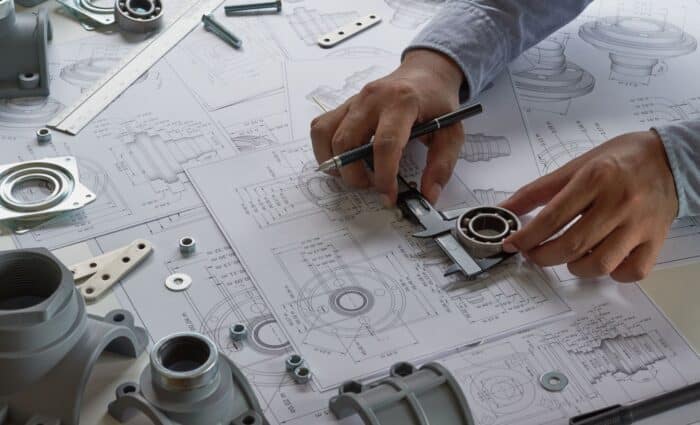
Undergraduate Certificate
This is a short course for school leavers without a professional qualification. Students get a sense of what completing a Diploma, Advanced Diploma or Bachelor of Science is like. These are short six-month courses that are tied to Mechanical Engineering.
Advanced Diplomas in Mechanical Engineering
This course is less theory-based and can help working engineers in the technical field. Students can also receive some credits to complete a Bachelor of Science degree later.
This practical program avoids too much emphasis on theory. The lecturers presenting this advanced diploma are highly experienced engineers who have worked in the mechanical engineering industry. The delivery methodology — live and interactive webinars with the use of state-of-the-art technologies such as remote and virtual laboratories and simulation software — ensures you graduate with cutting-edge skills that are valued by employers around the world. It takes 18 months to complete this Advanced Diploma and the subjects to be completed include:
- Fundamentals of Mechanical Engineering
- Use basic mathematics in engineering
- Structural Mechanics
- Mechanical Drive Systems
- AC Electrical Motors and Drives
- Pumps, Compressors and Turbines
- Lubrication and Mechanical Seals
- Rotating Equipment Balancing, Alignment and Condition Monitoring
- Hydraulics
- Pneumatics
2. Advanced Diploma of Plant Engineering
This advanced diploma will teach you how to implement and utilize engineering solutions in a diverse field in any organization, as well as integrate and solve interdisciplinary engineering systems.
You will also learn to analyze, diagnose, plan, design, and execute solutions concerning plant engineering, facilities management, maintenance management, safety management, environmental, and energy management. The program will cover how to prepare complex technical information and concepts to plan, communicate and implement solutions to a range of engineering environments and contexts. This Advanced Diploma runs for 18 months and some subjects’ students need to complete include:
- Introduction to Plant Engineering
- Basic Mathematics in Engineering
- Mechanical Equipment and Technology
- Fluid Power Systems and Components
- Thermodynamics, Compressors, Fans and Blowers
- Pumps and Seals
- Pressure Vessels and Boilers
- Heating, Ventilation and Air Conditioning
- Noise and Vibration
- Electrical Equipment and Technology

Bachelor of Mechanical Engineering Degree
Bachelor of Science (Mechanical Engineering) allows students theoretical and practical experience and knowledge in Mechanical Engineering. The degree consists of a combination of core units, sub-discipline-specific ‘stream’ units, industrial work experience, and a final year project.
Some major areas covered in the three-year qualification include: Mechanical Design and Drawings, Thermal Engineering including Energy Systems, Lubrication, Maintenance and Condition Monitoring, Fluid Power Engineering, Project Management, Technology, Sustainability and Society, Manufacturing Processes and Technology
Masters in Mechanical Engineering Degree
The Master of Engineering (Mechanical) addresses specific core competencies and associated knowledge and aptitudes required for mechanical engineers. Students might be eligible to apply for credits on units completed from a Graduate Certificate, to further a Master’s degree.
These six-month qualifications are valuable for graduates to gain new knowledge in different aspects of engineering, and can also be used as credit to enter a postgraduate degree. At EIT we offer the following postgraduate certificates with Mechanical Engineers in mind.
This Graduate Certificate in CAD and Computational Techniques will provide you with an opportunity to develop your expertise in Computer-Aided design (CAD), analyze problems related to fluid dynamics and aerodynamics; apply finite element methods to analyze fluid flow, thermal and structural engineering systems.
This graduate certificate will equip you with the necessary skills to address the demands of the modern mechanical engineering industry. Students with a background in mechanical, instrumentation & control, electrical, or industrial plant and systems engineering will be particularly well-placed to benefit from this program as it is designed to prepare you for further career development in the mechanical design and maintenance industries.
This Graduate Certificate will enable you to gain an in-depth understanding of key concepts of thermodynamics, mass transfer and heat transfer principles, fluid transport phenomena, process dynamics and control systems.
This Graduate Certificate will provide you with an opportunity to design, test and work with pumps, compressor, turbines, heat exchangers, industrial gas turbines and process engineering technologies.
Earning Potential for Mechanical Engineers
According to the US Bureau of Labor Statistics, the median annual wage for mechanical engineers was $95,300 in May 2021.
This means, on average mechanical engineers typically need a bachelor’s degree in mechanical engineering or mechanical engineering technology to earn $45.82 per hour.
Expected jobs for professional Mechanical Engineers
Aerospace Engineer
Mechanical engineers may find work as aerospace engineers. In this job, they will be working on various aircraft and other machines that find their home in the sky. Working on the development of craft such as aeroplanes is common for aerospace engineers, but they can also be found working on things such as missiles and launch pads.
Automotive Engineer
Automotive engineering is another great job that those with a mechanical engineering degree can find themselves in. As an automotive engineer, you will find yourself performing many of the same duties of an aerospace engineer, albeit with automobiles and other land-based vehicles.
Marine Engineer
This is another great job that mechanical engineering graduates can look into. We have gone over jobs that deal with land and air vehicles, and marine engineers round out the trio by working on water vessels.
Maintenance Engineer
This type of engineer is responsible for creating and evaluating maintenance strategies that can be implemented in various mechanical systems.
By checking the safety of systems while also ensuring that they remain stable, maintenance engineers are able to perform maintenance and upkeep that can keep these systems and projects up and running.
Materials Engineer
One of the more obscure jobs that a mechanical engineering degree holder can find themselves in, materials engineers actually hold quite an important role in terms of a project overall.
As a materials engineer, you can expect to be responsible for selecting the best materials and combination of materials for the project you are working on.
Not only that but you will be tasked with testing these materials and ensuring that they hold up against various external factors.
Explore EIT’s Mechanical Engineering Courses
Online - Master of Engineering (Mechanical)
Designed to prepare you for further career development in the…Read moreGraduate Certificate in Mechanical Engineering
Designed to prepare you for further career development in the…Read moreOn-Campus - Bachelor of Science (Mechanical Engineering)
This practical qualification will ensure you graduate job-ready as a…Read moreOnline - Bachelor of Science (Mechanical Engineering)
This practical qualification will ensure you graduate job-ready as a…Read moreUndergraduate Certificate in Mechanical Engineering
Upon completion of this undergraduate certificate, you will acquire fundamental…Read moreProfessional Certificate of Competency in Chemical Engineering and Plant Design
Designed for engineers and technicians who need practical knowledge in…Read moreProfessional Certificate of Competency in Gas Turbine Engineering
Designed for engineers and technicians who need practical skills in…Read more52884WA Advanced Diploma of Mechanical Engineering Technology
Delivered with a strong practical focus and covers a variety…Read moreProfessional Certificate of Competency in Heating, Ventilation and Air Conditioning (HVAC)
Designed for engineers and technicians from a wide range of…Read more52857WA Advanced Diploma of Plant Engineering
Skills for project management, process management, environmental and energy management,…Read moreProfessional Certificate of Competency in Mechanical Engineering
This professional development course is designed for engineers and technicians…Read moreProfessional Certificate of Competency in Onshore and Offshore Pipeline Systems
Designed for engineers and technicians who need to gain an…Read moreProfessional Certificate of Competency in the Fundamentals of Process Plant Layout & Piping Design
Professional development course is designed for engineers and technicians who…Read moreProfessional Certificate of Competency in Practical Mechanical Sealing
This professional development course is designed for engineers and technicians…Read moreOn-Campus - Master of Engineering (Mechanical)
Designed to prepare you for further career development in the…Read moreProfessional Certificate of Competency in Hydraulics and Pneumatics
Overview of all aspects related to the construction, design, operation,…Read moreOn-Campus - Doctor of Engineering
Graduates of the Doctor of Engineering (DEng) will be able…Read moreGraduate Certificate in CAD and Computational Techniques
Develop your expertise in Computer Aided design (CAD), analyze problems…Read moreGraduate Certificate in Process and Thermal Engineering
Deesign, test and work with pumps, compressor, turbines, heat exchangers,…Read more
